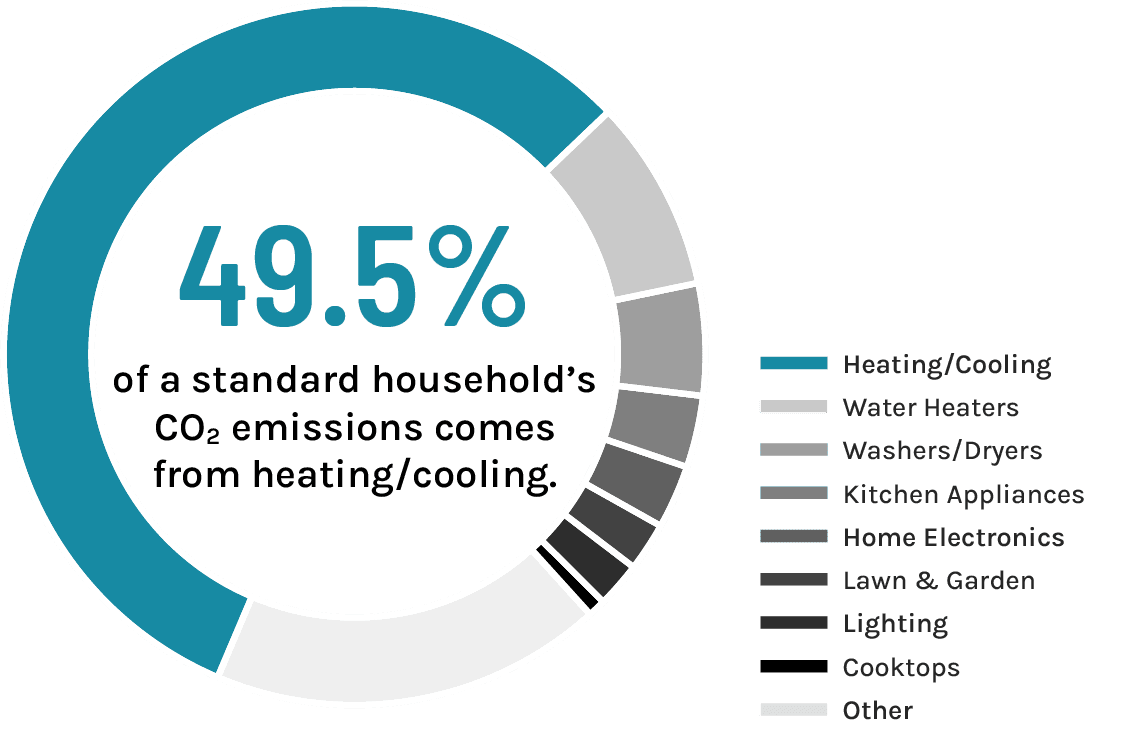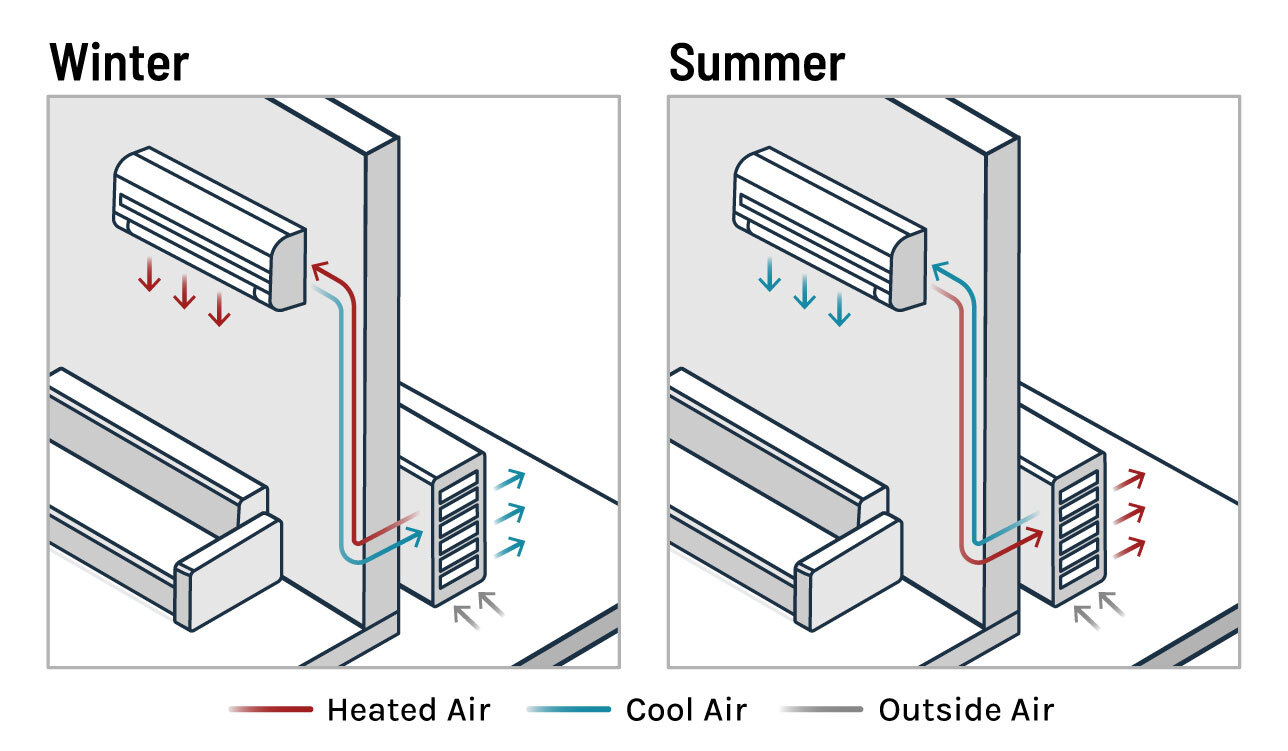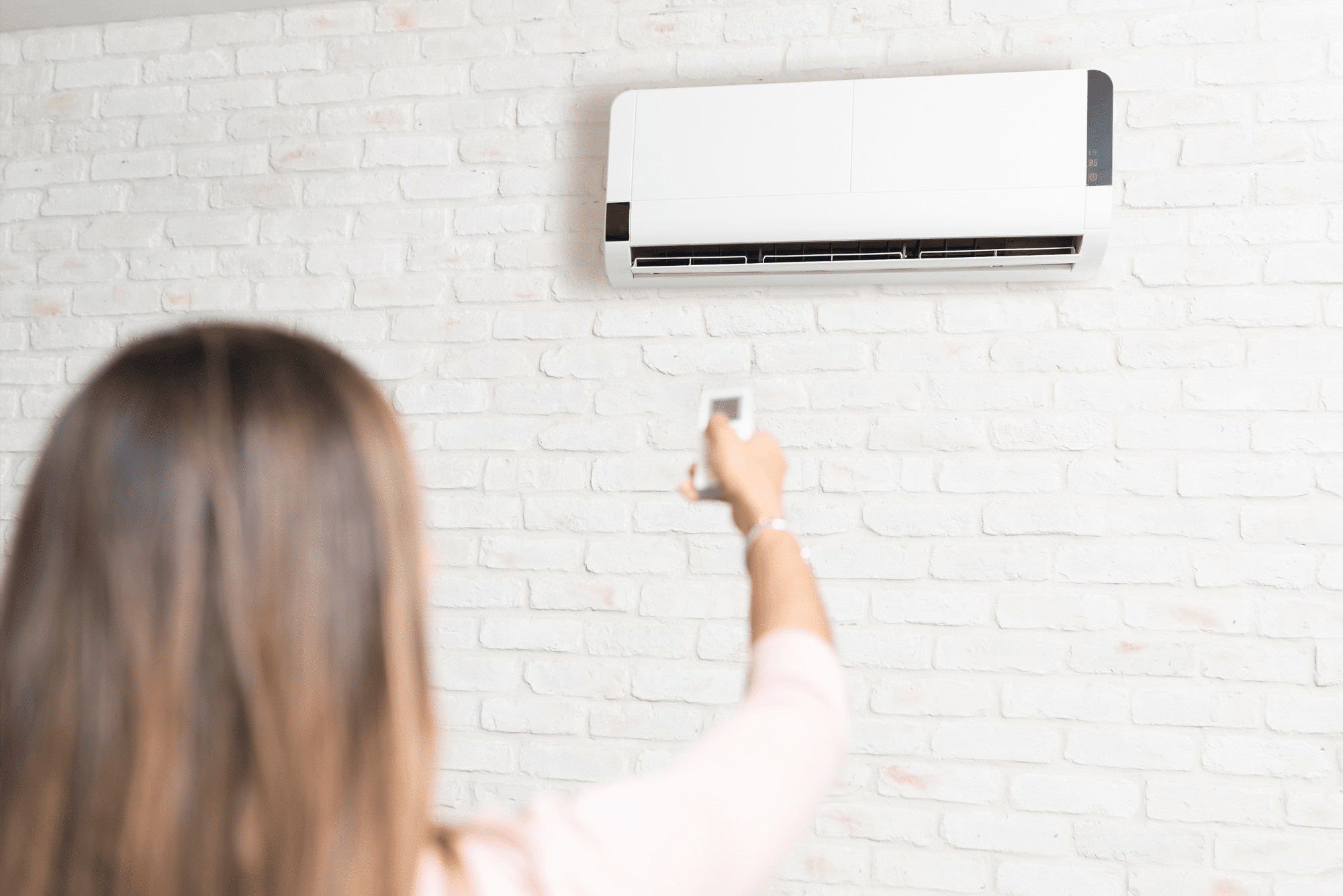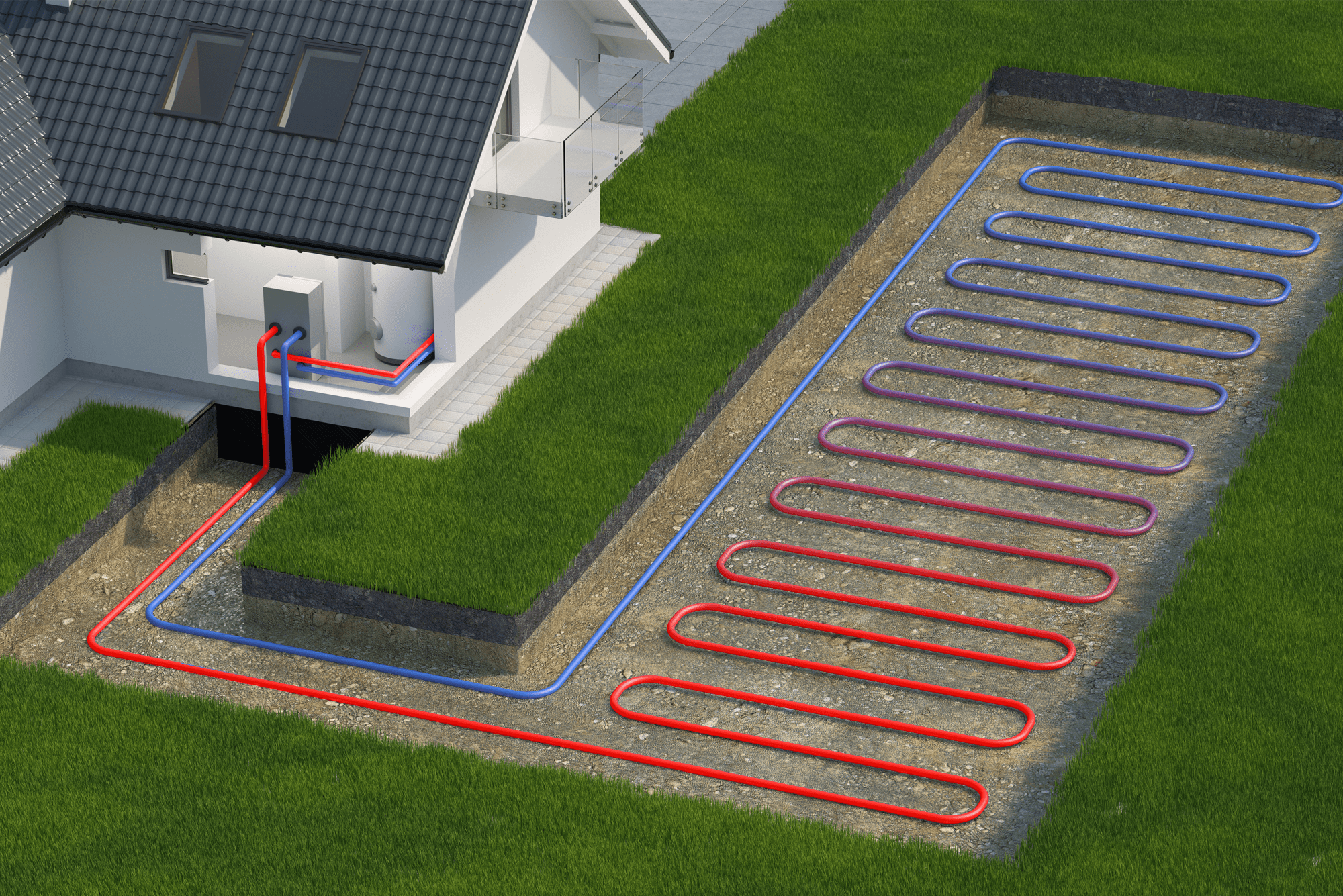Energy Efficient Heating And Cooling

If everyone switched to heat pumps, it would be the equivalent of shutting down
17 of the 241 coal-fired power plants in the U.S.
When considering how to save money on energy costs or reduce the carbon footprint of your home, switching to energy efficient heating and cooling systems is the single most impactful change you can make. Over 50% of a home’s energy use goes into making the air in our living spaces comfortable. If everyone in the United States, switched from outdated heating and cooling technology, to highly efficient and electric heat pump technology, we would eliminate over 390 million tons of CO₂ emissions per year.
Compare Your Heating Options
Cost and carbon footprint can vary greatly depending on the heating option you choose! With muddy data and inconsistent specifications from one technology to the next, it’s difficult to get to a side-by-side comparison. We did the math for you!
| Electric Baseboard Heating | Hydronic Baseboard Heating | Ducted Gas Furnace (95% Efficient) | Ducted Gas Furnace (80% Efficient) | Ducted Electric Furnace | Ducted Heat Pump | Ductless Mini-Splits + Heat Pump | |
| Approx. Cost of Unit | $698 | $2,048 | $1,730 | $1,373 | $1,499 | $5,055 | $3,586 |
| Heat Rating (btu/hour) | 51,180 | 51,200 | 60,000 | 60,000 | 68,242 | 30,800 | 36,000 |
| Annual Operating Cost | $1,985 | $1,985 | $1,029 | $1,222 | $1,985 | $787 | $616 |
| Total Cost over 10 Years | $20,548 | $21,898 | $12,020 | $13,593 | $21,349 | $12,925 | $9,746 |
| Pounds of CO2/year | 12,052 | 12,052 | 5,961 | 7,079 | 12,052 | 4,784 | 3,740 |
Table calculations are based off of how much energy it takes to produce approximately the same amount of heat (assumed heating needs of approx. 400,000 btus per winter day for an average 2,000 sf home).
Make the change
How Heat Pumps Work
Heat pumps use minimal energy from the grid, instead drawing in heat from the air around them and transferring it into a coil system. The heated coil then warms air, as its transferred through an air handling unit in your home. Working in the reverse, many heat pumps can also act as air conditioners using the same heat transfer methods, but instead pulling warm air out of your home. Because of the greatly reduced reliance on grid-energy or fossil fuels (natural gas or oil), the carbon footprint of a heat pump system is much lower than traditional furnaces, radiators or baseboard heating.
Ducted Heat Pumps
An outside heat pump can replace any furnace in a traditional forced-air heating system.
Ductless, Mini-Splits
Mini-splits are a fantastic, easy-to-install option if your home does not have a ducted air system.





